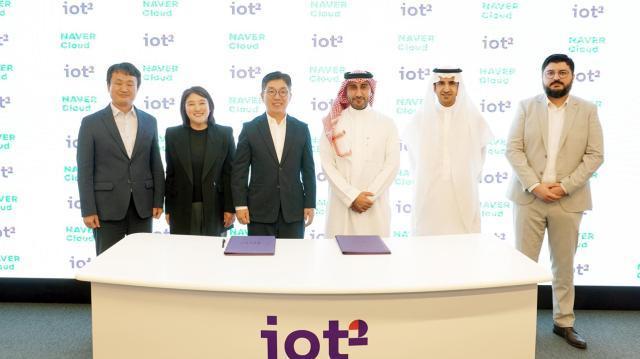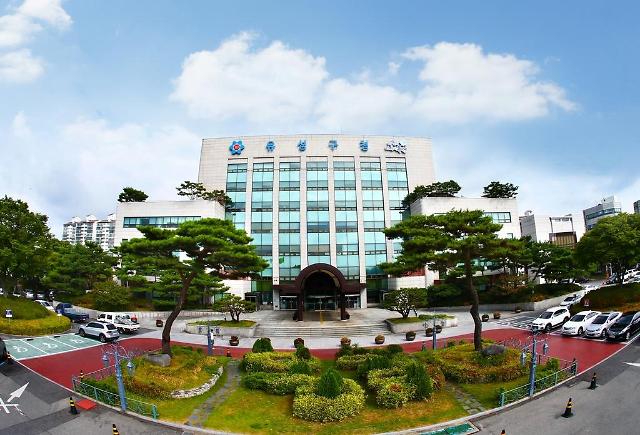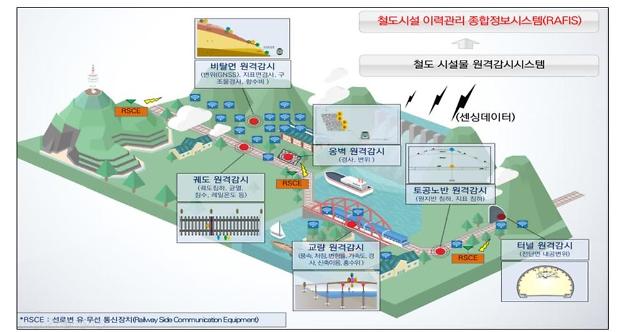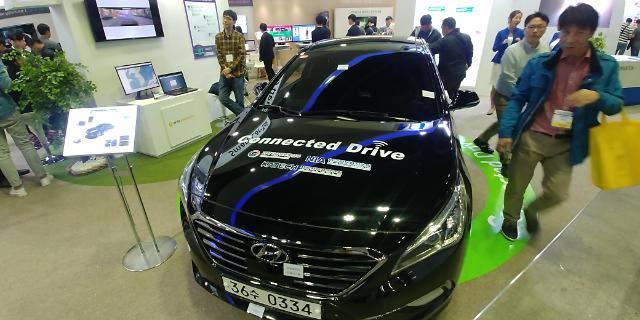
[Photo & video by Park Sae-jin ]
Watched by scores of curious visitors, devices for industrial use such as valves, sensors and robots showed off silent automated dance moves, demonstrating a change in South Korea's internet of things (IoT) industry.
The change in IoT technology was clearly witnessed at the "IoT KOREA Exhibition" hosted by the science ministry on October 12 at COEX, a conference and exhibition complex in southern Seoul.
Most of the devices displayed were designed for commercial purposes or made to be connected to commercial services.
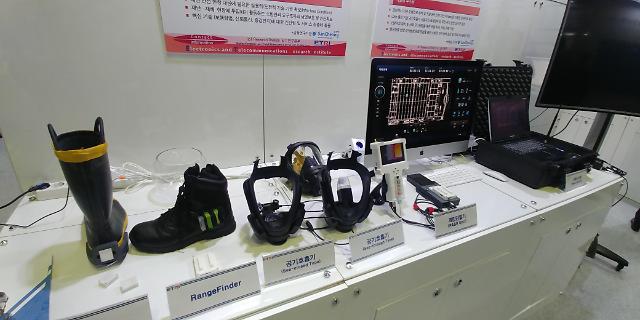
[Photo & video by Park Sae-jin ]
"Now the internet connected home devices are very common, many communication tech companies are focusing on creating totally new kind of services by combining IoT tech and devices," an official from South Korea's telecom giant KT told Aju News.
"Commercial IoT devices are all about simplifying and speeding up work process which would take longer for humans," he said.
Until last year, home IoT devices such as connected TVs and refrigerators received attention at the exhibition. This year, telecom heavyweights like KT, SK Telecom displayed trackers, connected cars and industrial tools that are connected with IoT services.
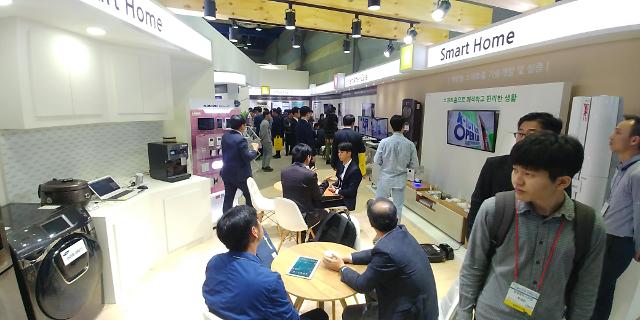
[Photo & video by Park Sae-jin ]
SKT has finished setting up LoRa (Long range, low power wireless platform) across the country last year while KT and LG U+, South Korea's second and third-largest mobile carriers, cover most areas with NB IoT (Near Band IoT wireless network).
Their networks dedicated for IoT communications are slower in data transferring speed, compared to 4G LTE mobile networks, but they are more suited for IoT use. They are efficient and cheap in sending and receiving small-sized data packets.
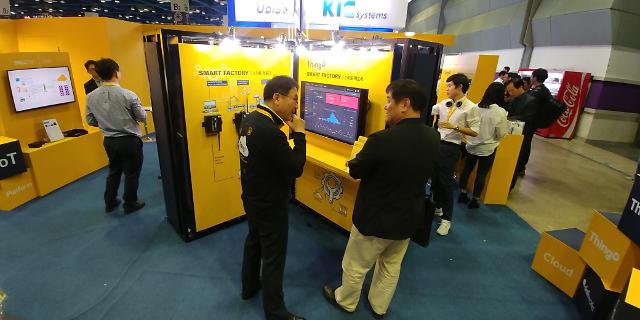
[Photo & video by Park Sae-jin ]
The advance in IoT technology has brought an industry-wide change. Using dedicated networks set up nationwide, devices such as trackers have become a very useful IoT device.
Trackers were not considered very effective until a few years ago when they relied on GPS signals because they consumed a lot of electricity and were not very accurate.
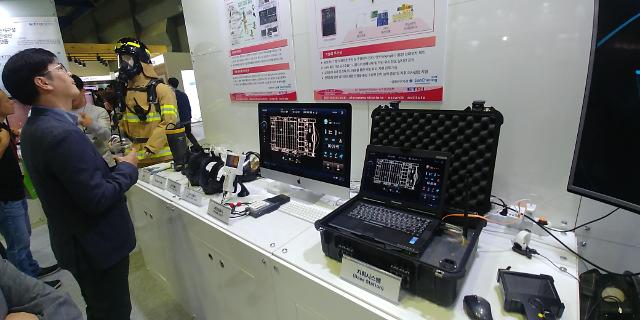
[Photo & video by Park Sae-jin ]
"Developing trackers for pets, children and elderlies with disabilities have become a new business item for many companies thanks to advancing IoT technologies. They are more accurate even in indoor environments," said the KT official, adding devices connected to an IoT network have great potentials.
SK Telecom, the country's top mobile carrier, focused on expanding its IoT services to every part of daily life. "We aim to focus on expanding our IoT services to connect everything," an SK Telecom official said.
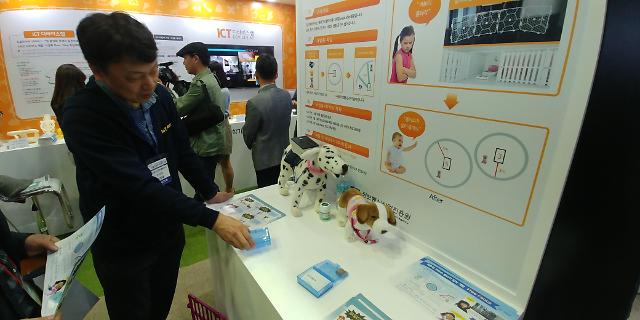
[Photo & video by Park Sae-jin ]
SK collects data generated by IoT devices in its network infrastructure and analyzes it to make full use of sorted data, he said, adding analyzed data will be handed over to small and mid-sized tech companies for development.
"We do not exactly know which company would request what kind of data but it is necessary for us to be ready and react quickly to consumers' needs. It will surely help to make their lives better."


